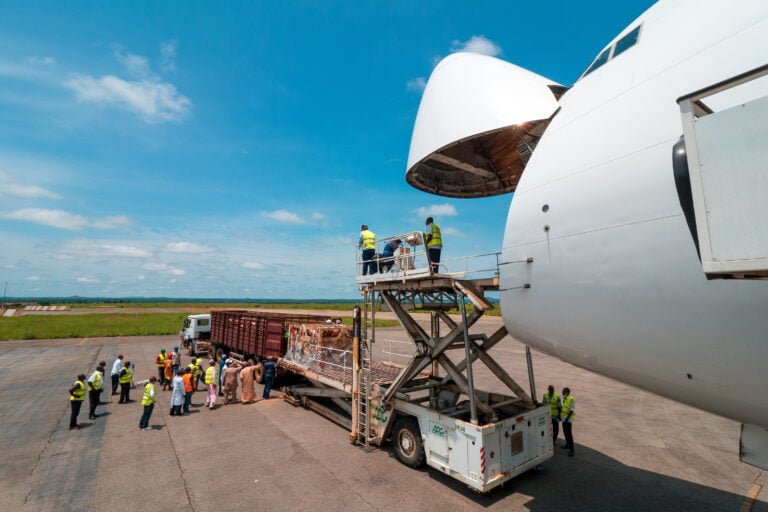The widebody segment of the air cargo industry is undergoing growth and transformation, driven by advancements in technology, market demands, and regional dynamics. Looking into the market, it’s clear there is evolution, with the introduction of the latest generation of production and converted aircraft. Manufacturers such as Boeing and Airbus are leading the charge here, offering advanced models equipped with state-of-the-art technologies and enhanced cargo capabilities.
Crawford Hamilton, head of Freighter Marketing at Airbus stated that “Airbus is equally enthusiastic about our widebody freighter portfolio. Our A350 freighter, with its advanced aerodynamics and fuel-efficient engines, is generating significant interest among operators seeking to optimise their cargo operations. Additionally, our A330 and A340 conversion programs offer flexible solutions for fleet modernisation.”
Boeing’s 777X freighter and Airbus’ A350 freighter are among the newest additions to the widebody freighter lineup, promising increased efficiency, range, and payload capacity. These aircraft are designed to meet the growing demand for long-haul cargo transportation while minimising environmental impact and operational costs.
In addition to new production models, converted widebody freighters remain popular options for operators looking to modernise their fleets. Conversion programmes for aircraft like the Boeing 767, 777, and Airbus A330 and A340 offer cost-effective solutions to extend the operational lifespan of existing airframes and adapt to changing market demands
Regional propensity
Asia-Pacific, in particular, has shown strong demand for large widebody freighters, driven by the region’s robust economic growth, expanding trade volumes, and geographical factors. Major cargo hubs such as Hong Kong, Singapore, and Shanghai are well-equipped to handle large widebody aircraft, facilitating seamless connectivity to global markets.
Operators in Asia-Pacific are increasingly opting for widebody freighters like the Boeing 747-8F, Boeing 777F, and Airbus A380F to capitalise on the region’s growing demand for air cargo services. These aircraft offer unparalleled cargo capacity, enabling operators to transport large volumes of goods efficiently across long distances.
John Perdoch, Product Marketing, Boeing stated that, “Boeing is excited about the advancements in our widebody freighter offerings. Our 777X freighter and 767 freighter conversion programmes are gaining momentum, providing operators with enhanced efficiency and payload capabilities. Additionally, our 747-8 freighter continues to be a popular choice for long-haul cargo operations.
Specific demand and usage patterns
Asia-Pacific remains a key driver of global air cargo demand, accounting for a significant portion of worldwide freight traffic. The region’s booming e-commerce sector, expanding middle class, and increasing reliance on just-in-time inventory management contribute to sustained demand for airfreight services.
Order books
Looking ahead, the widebody freighter segment in Asia-Pacific is poised for continued growth, supported by strong order books and ongoing fleet modernisation initiatives. Major carriers and leasing companies have placed substantial orders for new production and converted widebody aircraft, reflecting confidence in the region’s long-term air cargo market prospects.
“Usage patterns in Asia vary across different markets, with some countries prioritising express delivery services for time-sensitive goods, while others focus on transporting perishable or high-value commodities. This diversity in demand requires operators to tailor their fleets and services to meet specific market requirements effectively. Looking at order books, we see substantial commitments from operators and leasing companies in Asia for the latest generation of widebody freighters, reflecting confidence in the long-term growth prospects of the air cargo market in the region” stated John Perdoch, Product Marketing, Boeing.
Furthermore, advancements in technology, infrastructure development, and regulatory reforms are expected to further stimulate demand for widebody freighters in Asia-Pacific. As operators embrace innovation and adapt to evolving market dynamics, the widebody segment is set to play an increasingly vital role in driving economic growth and connectivity across the region.



